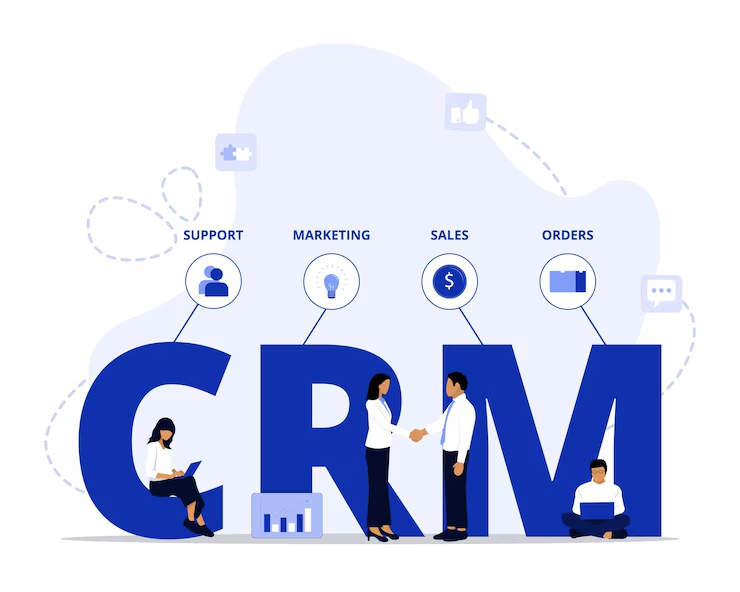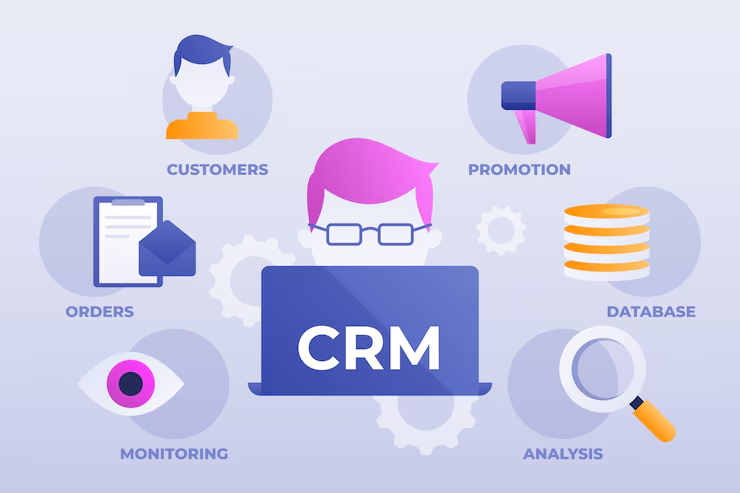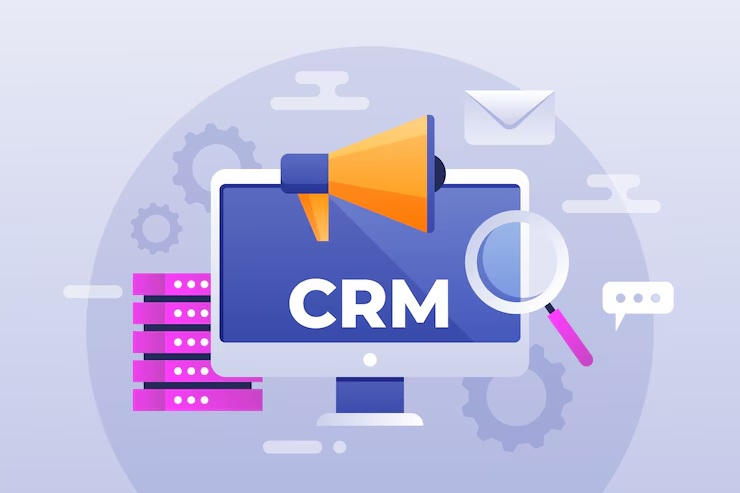The freight forwarding industry currently operates with numerous manual, fragmented processes and a significant reliance on human intervention. From handling quotation requests and tracking shipment progress to providing post-delivery customer care, all stages necessitate coordination across multiple departments and are susceptible to delays, errors, and a lack of transparency.
In a context where customers increasingly expect rapid, accurate, and personalized services, logistics companies need to undergo a significant transformation. Technology, particularly automation through specialized CRM systems, is playing a pivotal role in enhancing operational efficiency, increasing productivity, and improving the customer experience.
This article will focus on optimizing the quotation and customer care processes – two critical touchpoints in the customer journey – through a dedicated CRM for the freight forwarding industry. This will enable businesses to save time, minimize errors, and build a sustainable competitive advantage.
1. Why automating quotation and customer relationship management is the "golden key" for freight forwarders

Optimizing the quotation process
Optimizing the quotation process is a crucial step for businesses to enhance operational efficiency and improve customer experience. In traditional manual quotation workflows, numerous potential bottlenecks exist, such as gathering information from disparate sources, performing complex calculations, manually generating quotations, and tracking their delivery status to clients. These stages are not only time-consuming but also prone to errors. Implementing a CRM (Customer Relationship Management) system automates this entire process: freight rate information is stored and updated centrally, calculations are performed automatically based on input parameters, quotations are generated rapidly in a professional format, and can be sent to clients automatically. Consequently, businesses save processing time, minimize errors, accelerate response times, and elevate their professional image in the eyes of partners and customers.
Enhancing customer experience and retention
Enhancing customer experience and retention is a pivotal factor enabling freight forwarding companies to maintain a sustainable competitive advantage. Throughout the customer journey, several critical touchpoints exist, including quotation requests, shipment tracking during transit, and post-sales support. These stages require meticulous management and timely responses to deliver a positive customer experience. Leveraging a CRM system allows businesses to personalize interactions with each client through its ability to comprehensively store transaction history, record preferences, and note specific requirements. Furthermore, CRM's automation functionalities contribute to improved customer care quality: the system can automatically send shipment status notifications, schedule regular customer follow-up reminders, and systematically and efficiently collect and manage feedback. All these aspects contribute to increased satisfaction levels, foster long-term loyalty, and help reduce customer churn rates.
Boosting efficiency and productivity
Enhancing efficiency and productivity is a significant objective in the increasingly competitive freight forwarding industry. A CRM system plays a key role in freeing employees from repetitive tasks such as manual data entry, sending templated emails, or tracking customer status – thereby allowing them to focus on higher-value activities. CRM also provides a comprehensive overview of each customer and business opportunity, enabling employees to easily monitor progress, analyze potential, and make informed decisions. Managing sales and customer service teams becomes more effective through the monitoring tools, task assignment features, and performance evaluation metrics integrated within the system. Simultaneously, CRM improves collaboration between departments such as sales, operations, and customer service by facilitating synchronized data sharing and real-time updates. The result is smoother business operations, reduced redundancies, and enhanced overall efficiency.
2. The power of specialized CRM for freight forwarders in automation

Key Quotation Automation Features:
- Management of complex pricing structures (by route, cargo type, service, and time).
- Integration with shipping and logistics data (ports, airports, shipping lines, airlines).
- Generation of flexible and customized quotations based on client requirements.
- Automation of quotation approval workflows (where applicable).
- Tracking of quotation status and automated follow-up reminders.
Effective Customer Relationship Automation Features:
- Centralized and detailed customer information management.
- Customer classification and segmentation.
- Automation of communication processes (email marketing, SMS marketing).
- Integrated customer support ticketing system.
- Tracking of customer interaction history and issues.
Integration and Scalability Capabilities:
- Integration with other systems (TMS, accounting, email marketing, etc.).
- Customization and scalability to accommodate business growth needs.
- Easy generation of performance reports and analytics.
3. Key criteria for CRM selection

When selecting a CRM system for a freight forwarding business, careful consideration of critical criteria is essential to ensure suitability and long-term effectiveness. Primarily, the CRM system must possess features tailored to the specific operations of the industry, such as quotation management, shipment tracking, post-delivery customer care, and dedicated logistics sales management support.
- Customization and scalability are necessary factors to ensure the system can accommodate the unique requirements of the business and readily expand as operational scale increases.
- A user-friendly and intuitive interface enables employees to quickly familiarize themselves with and maximize the utilization of the features, thereby enhancing work efficiency.
- The CRM needs to offer robust integration capabilities with existing systems, such as accounting software, Transportation Management Systems (TMS), Warehouse Management Systems (WMS), or Enterprise Resource Planning (ERP) systems, to guarantee seamless data flow.
- A reasonable investment and operational cost, aligned with the company's budget and scale, is also a crucial factor to consider.
- The reputation of the vendor and the quality of their support services play a decisive role in the successful implementation and long-term stable operation of the system.
4. Sota Solutions implements Sota FMS software with specialized CRM for the freight forwarding industry
Sota Solutions is deploying its Sota FMS software, a business management system specifically designed for freight forwarding companies, featuring a dedicated CRM module to address unique industry requirements and optimize operational efficiency. Unlike generic CRM software, Sota FMS incorporates specialized functionalities such as logistics quotation management, real-time shipment tracking, post-delivery customer relationship management, and effective logistics sales team management.
Furthermore, Sota FMS boasts a user-friendly and intuitive interface, offering flexible customization options to align with individual business processes and seamless integration with existing systems like TMS, WMS, or ERP software. Leveraging practical industry experience and a highly skilled implementation team, Sota Solutions provides not only a modern management tool but also acts as a partner in digital transformation, enhancing productivity, service quality, and customer retention within the competitive logistics landscape.
5. Conclusion
In an increasingly competitive and demanding freight forwarding sector that requires high flexibility, the adoption of a specialized CRM system is not merely a trend but a crucial element for enhancing operational efficiency, optimizing customer experience, and driving sustainable growth. A solution like Sota FMS from Sota Solutions not only fully meets the specific demands of the logistics industry but also offers flexible customization, integration, and scalability, aligning with the long-term development strategy of businesses. Investing in a suitable CRM system is a strategic move that enables freight forwarding companies to successfully undergo digital transformation and establish a strong competitive advantage in the market.